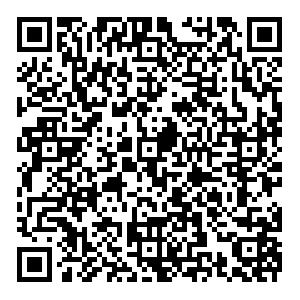|
[1]
|
潘士美, 张裕灵, 李玲. (2018). 义务教育学生科学素养及其关键影响因素研究——来自PISA、TIMSS和NAEP的国际测评经验. 外国教育研究,45(10),76−87.
|
|
[2]
|
裴新宁, 刘新阳. (2018). 初中课堂科学探究中究竟发生了什么——基于多案例的实证考察. 华东师范大学学报(教育科学版),(4),107−121.
|
|
[3]
|
朱晶. (2019). 论民国时期科学理想与社会诉求的建构——以进化论的传播为例. 上海交通大学学报(哲学社会科学版),27(127),92−103.
|
|
[4]
|
Alameh, S., & Abd-EI-Khalick F. (2018). Towards a philosophically guided schema for studying scientific explanation in science education. Science & Education, 27(9—10), 831−861.
|
|
[5]
|
Bauer, M. W. (2009). The evolution of Public Understanding of Science-Discourse and comparative evidence. Science Technology & Society, 14(2), 221−240.
|
|
[6]
|
Beilock, S.L., et al. (2010). Female teachers’ math anxiety affects girls’ math achievement. Proceedings of the National Academy of Sciences, 107, 1860−1863. doi: 10.1073/pnas.0910967107
|
|
[7]
|
Bloom, P., & Weisberg, D. S. (2007). Childhood origins of adult resistance to science. Science, 316, 996−997. doi: 10.1126/science.1133398
|
|
[8]
|
Boesch, B. (2019). Skill transmittance in science education: Study the skills of scientific expertise. Science & Education, 28(1—2), 45−61.
|
|
[9]
|
Braillard, P., & Malaterre C. (2015). Explanation in biology: An introduction. In Braillard, P., & Malaterre C. (eds.). Explanation in Biology: An Enquiry into the Diversity of Explanatory Patterns in the Life Sciences. Dordrecht: Springer, pp. 1—28.
|
|
[10]
|
Collins H., & Evans R. (2002). The third wave of science studies: Studies of expertise and experience. Social Studies of Science, 32(2), 235−296. doi: 10.1177/0306312702032002003
|
|
[11]
|
Gervais. W. M. (2015). Override the controversy: Analytic thinking predicts endorsement of evolution. Cognition, 142, 312−321. doi: 10.1016/j.cognition.2015.05.011
|
|
[12]
|
Goddiksen, M. (2015). An empirical method for the study of exemplar explanations, In Wagenknecht, S., Nersessian, N. J., & Andersen, H. (eds.). Empirical Philosophy of Science: Introducing Qualitative Methods into Philosophy of Science. Springer, pp. 105−126.
|
|
[13]
|
Gundersen, T. (2018). Scientists as experts: A distinct role?. Studies in History and Philosophy of Science, 69, 52−59. doi: 10.1016/j.shpsa.2018.02.006
|
|
[14]
|
Irzik G. & Nola R. (2011). A family resemblance approach to the nature of science for science education. Science & Education, 20, 591−607.
|
|
[15]
|
Kere, A. (2018). The Public understanding of what? Laypersons’ epistemic needs, the division of cognitive labor, and the demarcation of science. Philosophy of Science, 85(5), 781−792. doi: 10.1086/699690
|
|
[16]
|
Lombrozo, T., Thanukos, A., & Weisberg, M. (2008). The importance of understanding the nature of science for accepting evolution. Evolution: Education and Outreach, 1(3), 290−298. doi: 10.1007/s12052-008-0061-8
|
|
[17]
|
McDonald, C., & Abd-EI-Khalick, F. (2017). Representations of Nature of Science in School Science Textbooks: A Global Perspective. Routledge: New York.
|
|
[18]
|
Mercer, D. (2018). Why Popper can’t resolve the debate over global warming: problems with the uses of philosophy of science in the media and public framing of the science of global warming. Public Understanding of Science, 27(2), 139−152. doi: 10.1177/0963662516645040
|
|
[19]
|
Metz, S. E., Weisberg, D. S., & Weisberg, M. (2018). Non-scientific criteria for belief sustain counter-scientific beliefs. Cognitive Science, 42, 1477−1503. doi: 10.1111/cogs.12584
|
|
[20]
|
National Academies of Sciences, Engineering, and Medicine. (2016). Science Literacy: Concepts, Contexts and Consequences. Washington, DC: The National Academies Press.
|
|
[21]
|
National Academies of Sciences, Engineering, and Medicine. (2019). Science and Engineering for Grades 6—12: Investigation and Design at the Center. Washington, DC: The National Academies Press.
|
|
[22]
|
Pincock, C. (2018). Explanatory relevance and contrastive explanation. Philosophy of Science, 85(5), 806−818. doi: 10.1086/699715
|
|
[23]
|
Rudolph, J. (2002). Scientists in the Classroom: The Cold War Reconstruction of American Science Education. New York: Palgrave.
|
|
[24]
|
Soler, L., Zwart, S., Lynch, M., & Israel-Jost, V. (2014). Science after Practice Turn in the Philosophy, History, and Social Studies of Science. New York: Routledge.
|
|
[25]
|
Suldovsky, B. (2016). In science communication, why does the idea of the public deficit always return? Exploring key influence. Public Understanding of Science, 25(4), 415−426. doi: 10.1177/0963662516629750
|
|
[26]
|
Summers, R., & Abd-EI-Khalick, F. (2019). Examining the representations of NOS in educational resources: An analysis of lesson plans aligned with the Next Generation Science Standards. Science & Education, 28(3—5), 269−289.
|
|
[27]
|
Wan, D., Zhang, H., & Wei, B. (2018). Impact of Chinese culture on pre-service science teachers’ views of the nature of science. Science & Education, 27, 321−355.
|
|
[28]
|
Weber, E., Van Bouwel, J., & De Vreese, L. (2013). Scientific explanation. New York: Springer.
|
|
[29]
|
Weisberg, D. S., Landrum, A. R., Metz, S. E., & Weisberg, M. (2018). No missing link: Knowledge predicts acceptance of evolution in the United States. Bioscience, 68(3), 212−222. doi: 10.1093/biosci/bix161
|

 点击查看大图
点击查看大图




 下载:
下载: